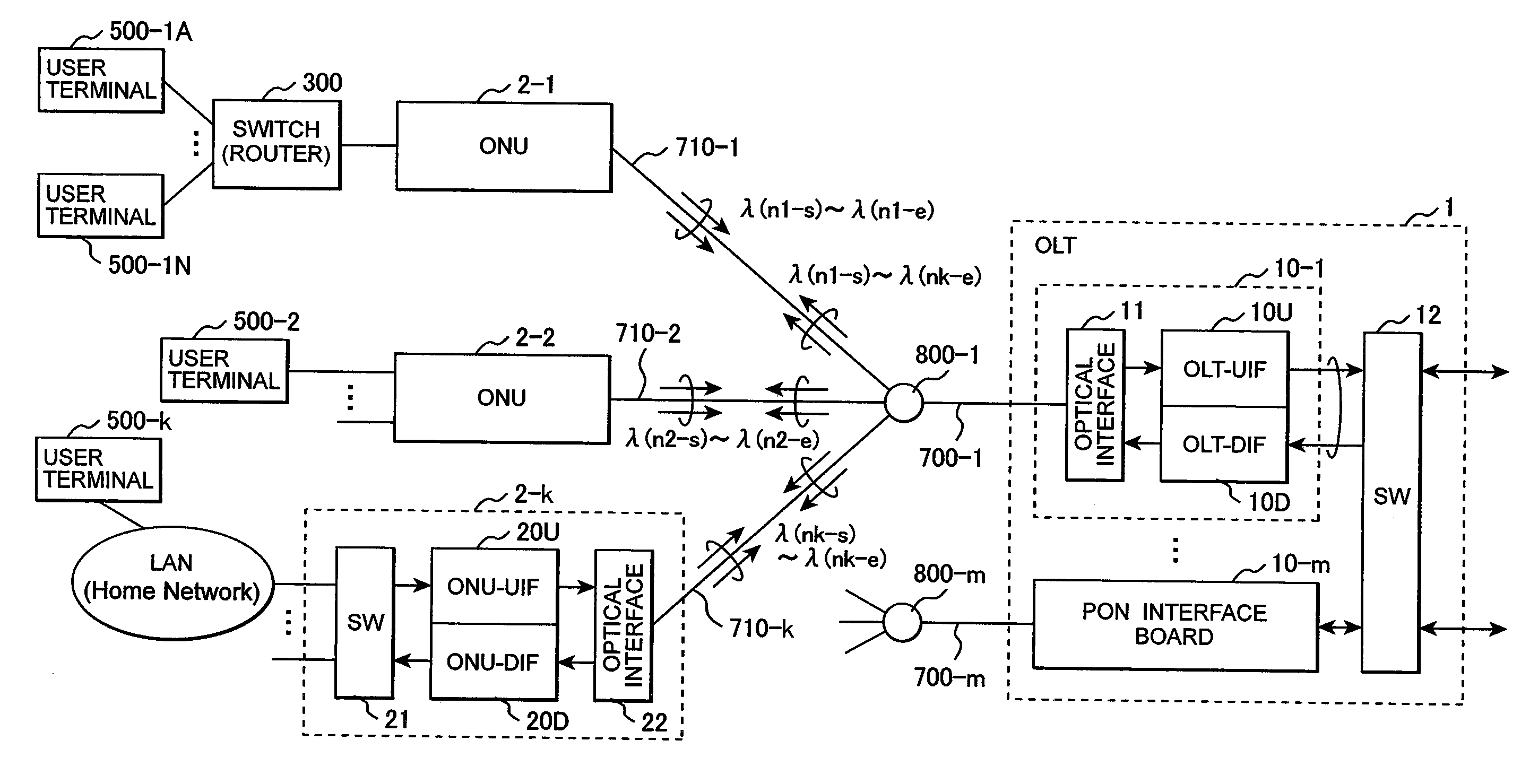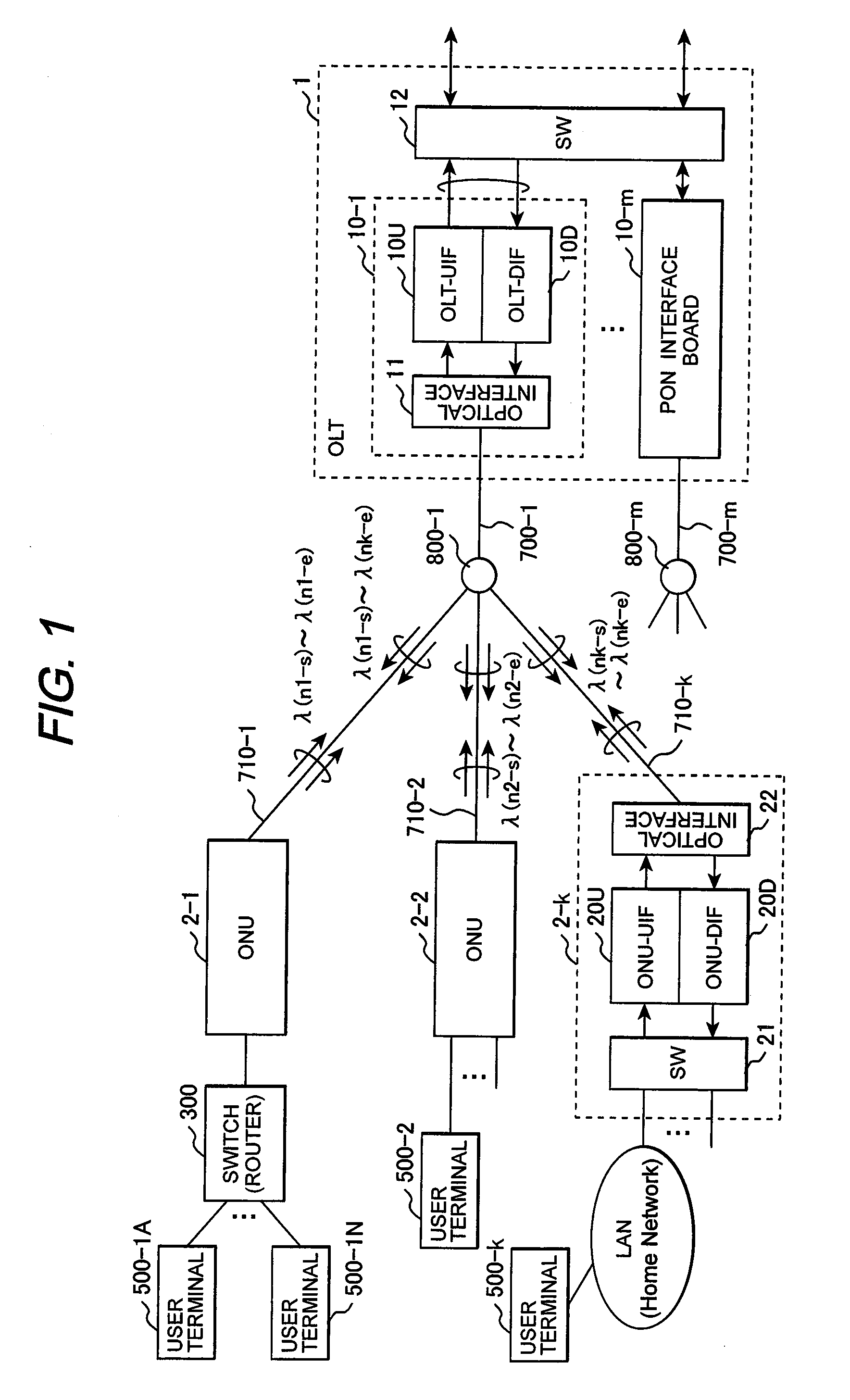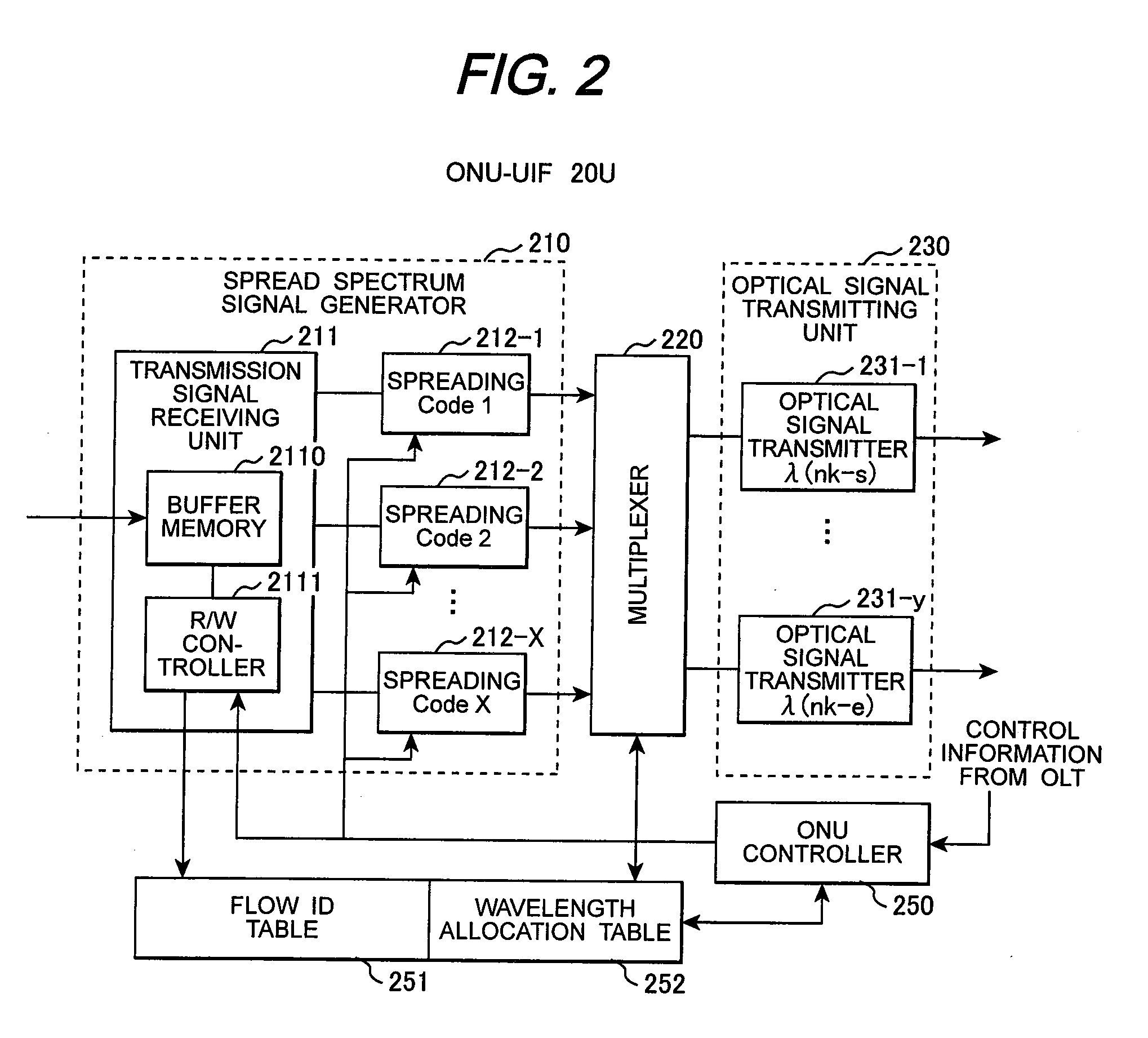Optical communication system using wdma and CDMA
a communication system and optical fiber technology, applied in multiplex communication, optical code multiplex, instruments, etc., can solve the problems of affecting the transmission performance of the transmission signal, the signal strength on the receiving side becomes zero, and the transmission information is completely lost, so as to avoid the interference between light waves and effectively use the transmission capacity of optical fiber
- Summary
- Abstract
- Description
- Claims
- Application Information
AI Technical Summary
Benefits of technology
Problems solved by technology
Method used
Image
Examples
Embodiment Construction
[0047]FIG. 1 shows the configuration of a PON system to which optical CDMA according to the present invention is applied and carrier wavelengths (carrier frequencies) in an optical fiber section.
[0048]The PON system is comprised of an office side line terminal apparatus OLT (Optical Line Terminal) 1 and a plurality of subscriber connection apparatuses ONU (Optical Network Unit) 2 (2-1 to 2-k) connected to the OLT 1 via an optical fiber network. The optical fiber network is composed of trunk optical fibers 700 (700-1 to 700-m) connected to the OLT 1 and a plurality of branch optical fibers 710 (710-1 to 710-k) connected to a trunk optical fiber 700 through an optical splitter (optical coupler) 800 (800-1 to 800-m). Each ONU 2 is connected to one of the branch optical fibers 710, and a plurality of ONUs share the trunk optical fiber 700 to communicate with the OLT 1.
[0049]One or a plurality of user terminals 500 are connected to each ONU 2. User terminals 500 are connected to the ONU ...
PUM
 Login to View More
Login to View More Abstract
Description
Claims
Application Information
 Login to View More
Login to View More - R&D
- Intellectual Property
- Life Sciences
- Materials
- Tech Scout
- Unparalleled Data Quality
- Higher Quality Content
- 60% Fewer Hallucinations
Browse by: Latest US Patents, China's latest patents, Technical Efficacy Thesaurus, Application Domain, Technology Topic, Popular Technical Reports.
© 2025 PatSnap. All rights reserved.Legal|Privacy policy|Modern Slavery Act Transparency Statement|Sitemap|About US| Contact US: help@patsnap.com



